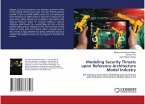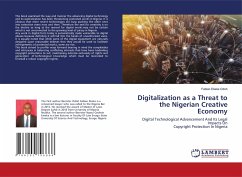The digital transformation is happening at a fast pace in all industries. And this transformation imposes challenges to the Maritime industry Stakeholders too. For instance, the increased level of automation on board of vessel will reduce the number of crew required on board that could potentially be more efficient in terms of costs and human error. However, the implementation this will require highly qualified seafarer. Increased automation of tasks that have traditionally been undertaken by the ships' crews, raises interesting legal questions across the whole spectrum of maritime law. The absence of clear regulation and legislation of autonomous operations increase the risk and raise a concern over the reliability and efficiency of these operations. This book entails to shed the light on the main challenges and opportunities the shipping industry stakeholders are facing to adopt the digital transformation in the maritime industry.
Bitte wählen Sie Ihr Anliegen aus.
Rechnungen
Retourenschein anfordern
Bestellstatus
Storno








